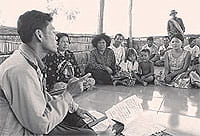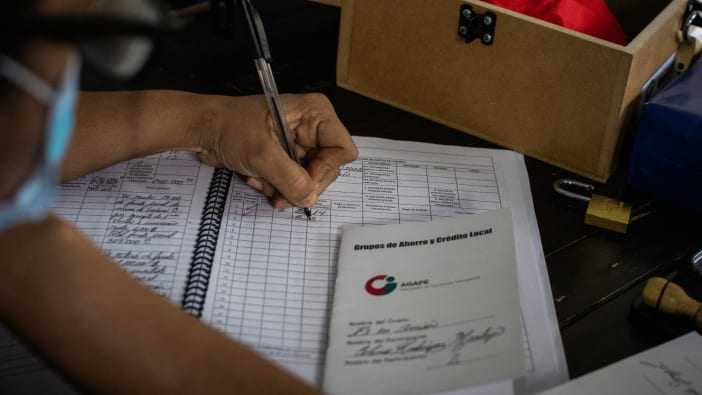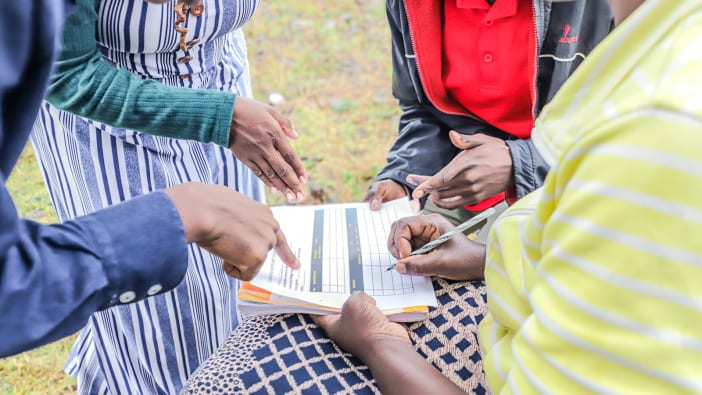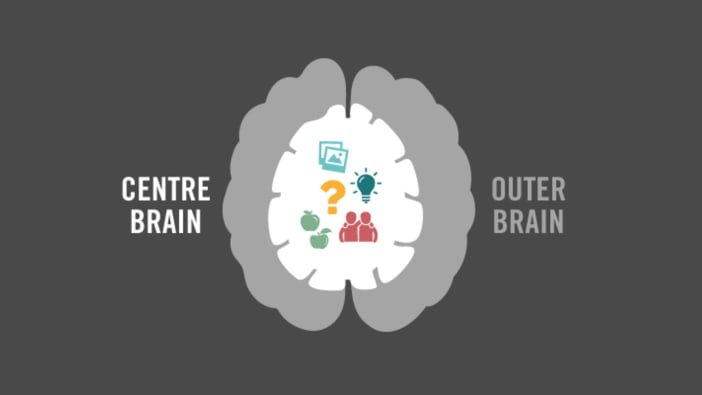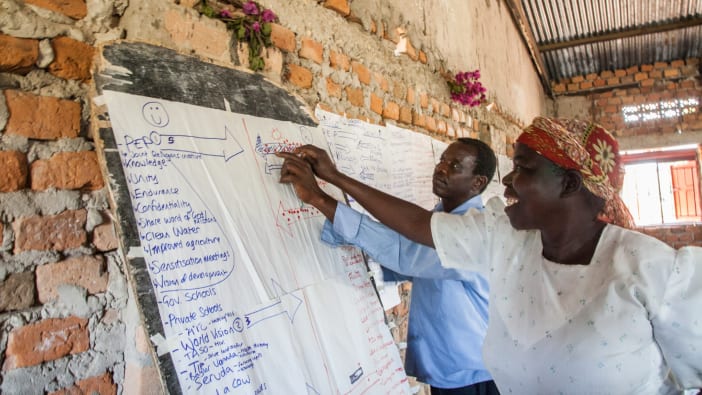by Emelita Santos Goddard.
For community development work to be sustainable, it is important to have a vision and plan for this from the start. Partnership and local participation are key, as sustainability is achieved when the development process is owned and managed by the local community itself, and not dependent on outside help.
Vision for sustainability
SAO (Southeast Asian Outreach) Cambodia, a member of International Cooperation Cambodia (ICC), works to encourage and strengthen Cambodian communities through development projects or church involvement. It focuses on developing the capacity of local partners, such as churches or community groups, for future management.
If a project or partnership is to be sustainable then it needs to be appropriate to the local situation and resources. The ability of local staff and the presence of local skills should be carefully considered, rather than bringing in outside funding or staff. Sustainability will be difficult to achieve if a project requires a lot of funding, or special skills, such as an eye health care project requiring an ophthalmologist. A small and simple project is more likely to be sustainable.
It is important that the local staff and community share and contribute to the vision from the start as this encourages local ownership of the project. Involve the community in the initial design and planning of the whole project cycle and in decision-making to make sure that planning is relevant to the local situation.
Partnership approach
A partnership approach is key to successful and sustainable development. It is important to value relationships, as a good relationship will promote cooperation and trust. In a culture like Cambodia, where young people are not given as much respect as older people, it can be challenging for younger staff to work with community leadership of mostly older people. However, when they approach the community leadership with respect they gain respect and cooperation in return.
Good communication and time spent listening to each other will help build positive relationships and better understanding. Clear communication, regular reviews and feedback help to clarify expectations and make sure that any problems that come up are dealt with quickly.
It is helpful for local groups to meet up with other similar groups to share experiences, learn from each other and address issues together.
Clear plans for local handover
Make clear the conditions and timing of the partnership or project at the start. This helps provide a sense of security and direction for the future. Set out and agree a time frame for the handover of roles and responsibilities to local staff.
Develop the capacity of local staff in leadership and management skills. SAO Cambodia has found that training in managing finances is particularly important in a context where people may have little previous experience of handling even small sums of money.
To help encourage financial sustainability, local groups could link with other groups and networks and research other potential sources of income, as well as learning to write project proposals, communicate with supporters and plan budgets. Financial accountability and an effective management committee or governing board will help local organisations to maintain the respect and trust of supporters.
Continued encouragement
If the development process is a partnership, the relationship doesn’t need to end when the funding ends. Support can continue through networking, encouragement, promotion, prayer, and sharing ideas and learning.
This article is adapted, with permission, from a presentation given at the Christian Community Development conference in Mosbach, Germany, March 2005.
Dr Emelita Santos Goddard was the founder of FAITH Project. She is now helping other Tearfund partners in Cambodia develop their capacity for transformational development. Her address is: No 12, Street 606, Phnom Penh, Cambodia.
E-mail: [email protected]
Partnership relations
Cambodians like to use pictures to describe situations. We use these models of relationships between an outside helper and local partner group to help discuss and define the meaning of partnership.
- Horse and horse rider
Does the helper act like a rider on a horse (partner), controlling the horse with much force? - Taxi driver and passenger
Does the helper act like a passenger in a taxi, where the partner drives but the passenger gives directions and the driver is paid to go where the passenger wants? - Oxen in an ox-cart
Do the helper and partner act like oxen yoked together by a common vision and being driven by the ‘Heavenly Farmer’ to achieve his purposes for his field?
Case study: FAITH
FAITH (which stands for Food security And Income generation, Training and Health project) is a pilot project run by SAO Cambodia – ICC. The FAITH Project aims to mobilise the local church in Cambodia for sustainable community development. It focuses on developing the capacity of a key group of committed Christian men and women to facilitate the process of development in their own community.
Community participation is key to the success and sustainability of local initiatives. FAITH staff help key groups of Christians to bring local people together to discuss and identify the needs of their community. The ideas for initiatives should come from the people themselves and should benefit the whole community. Projects might include: rice banks, wells, toilets, home gardens, irrigation system, waste recycling, health education, income generation and teaching children. The community participates in the decision-making process and implementation. Local people contribute cash, produce, labour, materials or time. This helps to share some of the total costs and facilitate ownership and accountability. The development initiative is therefore owned by local people, and is managed by them and for them.
The capacity of the key group is built up and strengthened through the FAITH Project until they are able to facilitate and manage other development initiatives in their community. When this is achieved, FAITH staff slowly withdraw, but remain available to advise, if necessary.




